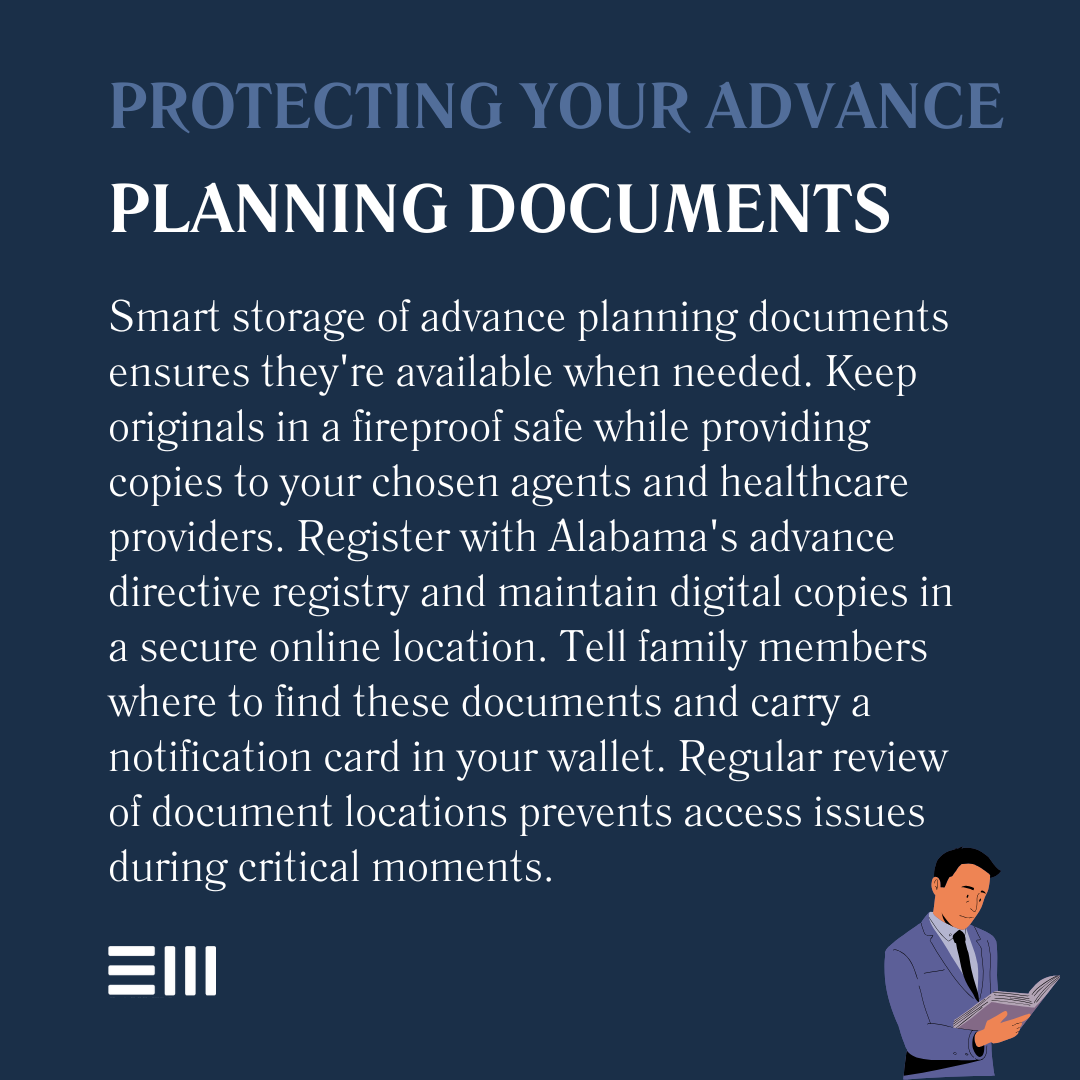Nearly 60% of Americans lack the essential legal documents needed to protect their interests if they become incapacitated.
Every family has their story. The sudden illness that no one saw coming, the accident that changed everything overnight, or the gradual decline that left loved ones struggling to manage medical and financial decisions.
These moments reveal a truth many prefer not to face: life can change in an instant. While we can't predict the future, we can prepare for it.
Our Advance Planning Package offers peace of mind through three powerful legal tools that ensure your voice is heard and your wishes are honored, even when you cannot speak for yourself.
The Three Pillars of Advance Planning
Every well-structured advance planning strategy rests on three fundamental documents: a Durable Power of Attorney, a Health Care Power of Attorney, and an Advance Health Care Directive.
Each serves a distinct purpose in protecting your interests and ensuring your wishes are honored during challenging times.
Durable Power of Attorney for Financial Affairs
A Durable Power of Attorney (DPOA) empowers your chosen agent to manage your financial matters if you become unable to do so.
This document remains effective even if you become incapacitated, unlike a standard Power of Attorney that terminates upon incapacity. In Alabama, a DPOA must be properly executed and notarized to ensure its validity.
Key functions of a DPOA include:
- Managing bank accounts and investments;
- Paying bills and handling tax matters;
- Maintaining or selling property;
- Managing business interests;
- Applying for government benefits;
- Handling insurance claims and policies;
- Accessing and managing digital assets;
- Making gifts within specified limits;
- Hiring professional services when needed; and
- Managing retirement accounts and pensions.
These comprehensive powers ensure your financial affairs continue smoothly even during periods of incapacity, protecting your assets and maintaining your financial obligations without interruption.
Health Care Power of Attorney
The Health Care Power of Attorney (HCPOA) designates someone to make medical decisions on your behalf when you cannot communicate your wishes.
This document works in conjunction with your Advance Health Care Directive but covers all medical decisions, not just end-of-life care.
Under Alabama law, your HCPOA must be witnessed by two adults or notarized.
Your health care agent can:
- Consult with your doctors about treatment options;
- Access your medical records;
- Authorize or decline specific treatments;
- Choose healthcare facilities and providers;
- Ensure your religious or cultural preferences are respected;
- Make decisions about organ donation;
- Coordinate with insurance providers;
- Authorize transfer to different facilities;
- Hire and dismiss medical personnel; and
- Advocate for your best interests with medical staff.
Having a trusted agent with these powers ensures your healthcare wishes are respected and provides crucial support during medical emergencies or ongoing health challenges.
Advance Health Care Directive (Living Will)
An Advance Health Care Directive, commonly known as a Living Will, specifically addresses your end-of-life care preferences.
This document guides your family and medical team when you have a terminal condition or are permanently unconscious. Alabama recognizes Living Wills under the Natural Death Act.
Essential elements include:
- Preferences for life-sustaining treatments;
- Pain management directives;
- Artificial nutrition and hydration choices;
- Comfort care instructions;
- Religious or spiritual considerations;
- Organ and tissue donation wishes;
- Specific medical interventions to accept or refuse;
- Personal values and quality of life preferences;
- Hospice care preferences; and
- Final arrangements preferences.
These detailed instructions provide peace of mind knowing your end-of-life care will align with your personal values and beliefs.
Safeguarding Your Documents
Having these documents properly prepared is only the first step. Ensuring they're accessible when needed is equally crucial.
Consider these essential storage strategies:
- Keep original documents in a fireproof safe or safety deposit box;
- Provide copies to your named agents and alternate agents;
- Give copies to your primary healthcare providers;
- Register copies with Alabama's advance directive registry;
- Store digital copies in a secure online location;
- Inform family members where to find these documents;
- Keep a card in your wallet indicating you have these documents;
- Review and update document locations annually;
- Maintain a list of who has copies; and
- Consider using an electronic vault service.
Proper storage and accessibility of these documents ensures they'll be available when needed most, preventing delays in implementing your wishes during critical situations.
Frequently Asked Questions About Advance Planning in Alabama
Understanding your advance planning options helps you make informed decisions about your future.
Here are answers to common questions about these essential documents.
When Should I Create These Documents?
The best time is now, while you're healthy and can clearly express your wishes. Legal capacity is required to create valid advance planning documents.
How Often Should I Review These Documents?
Review your documents every 3-5 years or after major life events such as:
- Marriage or divorce;
- Death of a named agent;
- Relocation to another state;
- Significant health changes;
- Changes in your preferences or values;
- Birth of children or grandchildren;
- Retirement;
- Major asset acquisitions or sales;
- Changes in tax laws; and
- Updates to state regulations.
Regular review ensures your documents remain current and continue to reflect your wishes as life circumstances change.
What Makes a Power of Attorney "Durable"?
A power of attorney becomes "durable" when it contains specific language, stating it remains effective even if you become incapacitated. This durability is essential for advance planning purposes.
Can I Name the Same Person for Both Financial and Healthcare Decisions?
Yes, you can name the same person for both roles. Consider their capabilities, trustworthiness, and ability to handle both responsibilities effectively.
What Happens if I Don't Have These Documents?
Without these documents, your family may need court intervention through guardianship or conservatorship proceedings, which can be:
- Time-consuming;
- Expensive;
- Emotionally draining;
- Public record;
- Less flexible than your chosen arrangements;
- Subject to ongoing court supervision;
- Potentially contentious among family members;
- Complicated by interstate issues;
- Delayed during critical periods; and
- Costly to maintain long-term.
The absence of proper advance planning documents can lead to significant stress, expense, and family conflict during already challenging times.
Take Control of Your Future
Don't leave your future to chance. Contact Baxley Maniscalco today to create your comprehensive Advance Planning Package.
Our experienced Alabama attorneys will guide you through each document, ensuring your wishes are clearly documented and legally protected.
We understand Alabama's specific legal requirements and can help you create a robust plan that protects your interests and supports your family's needs.
Schedule your consultation now. Protect yourself and your loved ones with a properly prepared Advance Planning Package.


